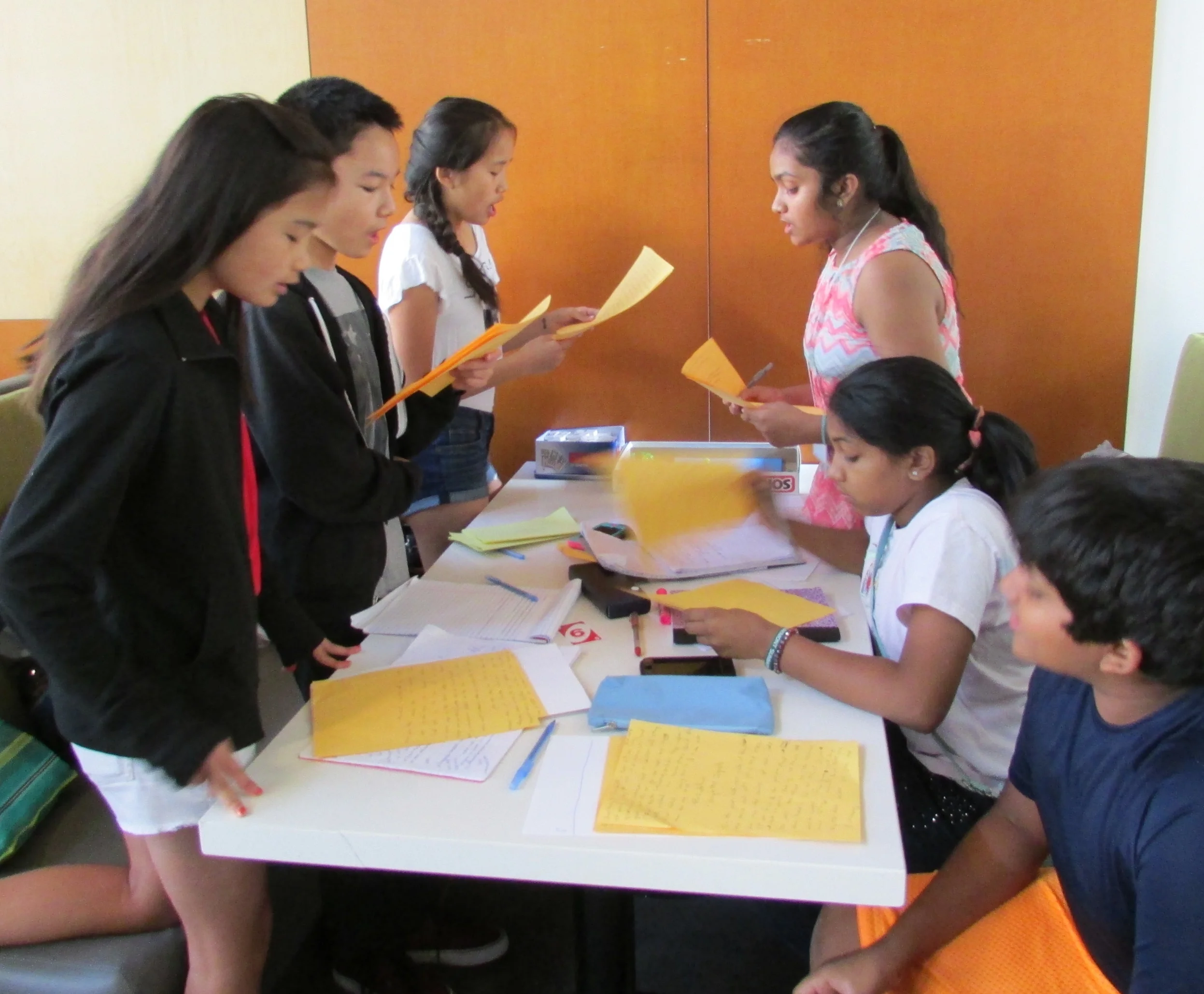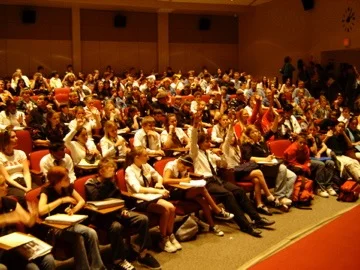The Middle School Public Debate Program is the world's largest initiative for classroom and contest debating.
Specifically designed to meet the needs of students in the middle grades (ages 10-14), it serves more than 40,000 students per year in the United States, across the African continent, and around the world. We are committed to sound pedagogy, rigorous practice, accessible materials and meaningful community service. An educational debate outreach initiative of Claremont McKenna College, the MSPDP partners with schools and institutions including the English-Speaking Union and Tulane University to provide world-class debate experiences.
Please use the menu above to find resources for coaches and debaters, a bank of topics, information about joining or founding a league, updates, and contact information.
Program Elements:
Developmentally Appropriate - A debate format created with the specific academic and socio-emotional needs of young adolescents in mind.
Backwards Design - Learning experiences scaffolded towards essential questions around effective argumentation and understanding multiple perspectives.
Affordable and Accessible - Schools organize into low-cost leagues for rigorous local competition.
Teacher Led - Leagues are organized and led by teachers with the support of local and national volunteer staff.
Textbook Supported - In addition to free online resources, teachers and students can go in-depth to explore complex issues.
Standards Aligned - Materials and practices designed to fit current reading, speaking and listening standards.
Open Participation - Students may participate regardless of school type or location across grades 5-8.
Quality Control - Tournaments follow standardized procedures, including judge training and certification.
How We Debate:
Empathy Building - Students are rewarded for listening to and quoting their opponents and teammates.
Three Person Teams - Based on research support for three person working groups in the middle grades.
Note Taking - Students and judges take detailed notes during debates, as the content of debates determines their outcome.
Rigorous Subjects - Topics range from accessible to difficult, so that teachers scaffold learning in preparation.
Rotating Topics - Students research both sides of up to 35 topics per year, debating each one in competition.
Research Skills - Students deliver informed extemporaneous speeches based on their own research.
Dynamic Format - Debates include interactive elements to ensure students are engaged throughout.
Multiplistic & Evaluative Thinking - Debaters must be prepared to argue either side of an issue and weigh the importance of different arguments.
What's New:
This website is continually being updated. If you have questions about the program,
please email MSPDP Co-Director Kate Shuster: kate.shuster[at]gmail.com.






